What Differentiates a Multiplier from a Diminisher? A discussion with a client this weekend punctuated his ability to use this characteristic to bring out the best in people. Liz Wiseman, author of Multipliers, asked the Growth Summit Audience last week which of the following responses most differentiated Multipliers from Diminishers:
Strategic Discipline Blog
What Differentiates a Multiplier from a Diminisher – Orlando Growth Summit
Posted by Douglas A Wick on Mon, Oct 25, 2010
Topics: Growth Summit, Multipliers, productivity, Diminishers
Warren Buffet’s Mr. Fix It #1 Lesson - Orlando Growth Summit
Posted by Douglas A Wick on Tue, Oct 19, 2010
It is a recurring theme I almost wrote about yesterday. Today several speakers addressed it again - the importance of discipline and the value of strategic thinking and preparation over strategic planning. David Sokol, Warren Buffet’s Mr. Fix it and the man consistently mentioned as Buffet’s eventual replacement, Chip Heath [Switch] iz Wiseman [Multipliers], and Verne Harnish all delivered insightful messages today. I’ll offer more from each in my blogs ahead.
Topics: Discipline, Growth Summit, Strategic Planning
The Drama Triangle or Empowerment Dynamic - Orlando Growth Summit
Posted by Douglas A Wick on Tue, Oct 19, 2010
In advance of the Fortune Fall Growth Summit, Gazelles coaches gather to sharpen our plowshares [so to speak] and learn new best practices and ideas from the thought leaders. Today included a new tool from Verne Harnish to help identify the 4-9 critical processes that drive a success as well as Verne’s new concept on Strategy. He specifically provided a best practice example from one of our Gazelles clients, Build Direct, that’s applying the Seven Strata of Strategy with great success. More on these in future blogs and newsletters.
Topics: employee engagement, Growth Summit, stress
One of Michael Gerber’s [E-Myth Revisited author]precepts for building a business was that the business should serve the owner. In order to do that Michael preached that you had to build the business to sell it one day. Until now I haven’t seen a good test that could accurately offer whether or not your business is ready to market and sell. Our Rockefeller Habits Checklist provides a good list of activities that when followed put your business in position where your executive team will consistently work strategically on the business, concentrating on the right things and not to be interrupted by the day to day operations. That puts the business in a position to be sellable.
Topics: Growth Summit, Rockefeller Habits Checklist, Built to Sell, Micheal Gerber
Zappos Employees Live the Brand – Core Values – LV Growth Summit
Posted by Douglas A Wick on Fri, Apr 23, 2010
Travel and a Two Day Private Rockefeller Habits workshop prevented me from blogging earlier. Today's 1st day of the workshop with my client reinforced the message from Tony Hsieh, Zappos CEO. If you don't know the story of Zappos check them out. Tony started the business in 1999 and completed stock sale to Amazon in November 2009 for $1.2 Billion. He knows a little bit about success.
Topics: One Thing, Core Values, Growth Summit, Two Day Rockefeller Habits Workshop, Zappos
Growth Summit cont Fred Reichheld The ultimate Question – Customer Advocacy
Posted by Douglas A Wick on Fri, Feb 1, 2008
How do you measure customer loyalty? How important is customer loyalty? Fred Reichheld suggests that most companies are doing customer loyalty all wrong, and yet it is the one thing that when done right secures real growth for your business. In Fred’s presentation he discussed his books, The Ultimate Question, Loyalty Rules and The Loyalty Effect, mostly highlighting recent information in the latest offering, The Ultimate Question.
Topics: Net Promoter Score, Growth Summit, NPS, Fred Reichheld
Growth Summit cont Paul Orfalea Transform Obstacles Into Opportunities
Posted by Douglas A Wick on Sat, Jan 19, 2008
Paul Orfalea is that man who created Kinko’s. He’s written a book, "Copy This!" about his taking a small copy shop and turning it into a $2 billion a year company. FedEx Kinko’s, as it is now known, is the world’s leading business services chain with over 1500 locations worldwide. He is also the self proclaimed “poster boy for Attention Deficit Disorder and dyslexia who just happened to have failed two grades.
Topics: Growth Summit
Growth Summit - Emergence At Work Steven Berlin Johnson
Posted by Douglas A Wick on Mon, Dec 31, 2007
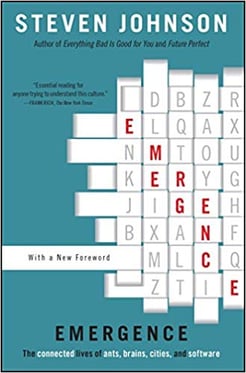 Steven Johnson is the author of Emergence, The Connected Lives of Ants, Brains, Cities and Software. Most great ideas he noted arrive in the form of hunches, unfortunately in most organizations the freedom to follow these hunches is not readily granted. What he offered was a series of examples to prove the value of what is called swarm intelligence. Order can come from the bottom of your organization, and there is wisdom in crowds. What the Internet has provided is an opportunity to see the emergence of this and the value it provides.
Steven Johnson is the author of Emergence, The Connected Lives of Ants, Brains, Cities and Software. Most great ideas he noted arrive in the form of hunches, unfortunately in most organizations the freedom to follow these hunches is not readily granted. What he offered was a series of examples to prove the value of what is called swarm intelligence. Order can come from the bottom of your organization, and there is wisdom in crowds. What the Internet has provided is an opportunity to see the emergence of this and the value it provides. Wikipedia and Mozilla Fire Fox are two examples of the collective intelligence that has made these two very successful. Google’s success has come through recognizing this bottom up thinking and they have organized their search rankings by counting every link on the web as a vote and thus allowing everyone to vote to attain page rankings. It must be working since Google continues to gain in popularity as the number one search engine.
In meaning cases the bottom up pattern works better than top down, however he offered several case studies where without leadership, this eventually leads to a downfall in an organization.
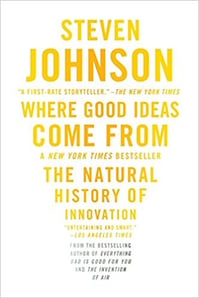 Lego is an example where the business involved their customers to develop new products and ideas. That is perhaps the most important practical piece of information I received out of this presentation. By involving your customers and your staff you can stimulate innovations. Yet customers and staff have to feel they are contributing and that these contributions are making a difference. IF they don’t the likelihood of their continuing to contribute diminishes. The challenge with this practice is getting involvement since the examples of Wikipedia and Mozilla show that in a group contribution 1% do most of the work, 10% participate, edit and offer contributions, yet fully 89% don’t do anything. In order to gain more participation Steve suggested rewarding schemes, rating comments and perhaps simply put a competitive environment in place where people compete for higher scores. Even in situations where there is nothing but a scoring system that is largely meaningless, people contribute more to raise their score.
Lego is an example where the business involved their customers to develop new products and ideas. That is perhaps the most important practical piece of information I received out of this presentation. By involving your customers and your staff you can stimulate innovations. Yet customers and staff have to feel they are contributing and that these contributions are making a difference. IF they don’t the likelihood of their continuing to contribute diminishes. The challenge with this practice is getting involvement since the examples of Wikipedia and Mozilla show that in a group contribution 1% do most of the work, 10% participate, edit and offer contributions, yet fully 89% don’t do anything. In order to gain more participation Steve suggested rewarding schemes, rating comments and perhaps simply put a competitive environment in place where people compete for higher scores. Even in situations where there is nothing but a scoring system that is largely meaningless, people contribute more to raise their score. Sites like Amazon and E-Bay have gotten great contributions for ratings and comments from their customers which has greatly enhanced their offerings and provided additional value to new and existing customers. If you’ve been to Amazon you’ve probably seen the comments from readers about a book and their rating system. Have you found it helpful? I have, and often times I will read the most negative rating just to make sure what they are saying warns me of what I should be concerned about before making my purchase.
Topics: Growth Summit
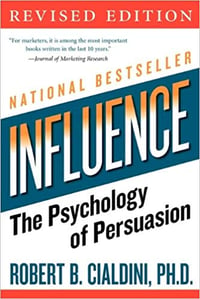 Which do you feel is more important, for you to be liked or for you to like the person you are trying to sell? You may disagree with this next statement, but if you think about it I believe you will discover it is true. Praise is the only information accepted and valued as much as when it is true as when it is false. What’s the point of this? The point is that it’s not important for the other person to like you. What’s important is for you to like them. Whether I like you or not will not determine whether I make a purchase, but rather if you like me I will be more inclined to purchase.
Which do you feel is more important, for you to be liked or for you to like the person you are trying to sell? You may disagree with this next statement, but if you think about it I believe you will discover it is true. Praise is the only information accepted and valued as much as when it is true as when it is false. What’s the point of this? The point is that it’s not important for the other person to like you. What’s important is for you to like them. Whether I like you or not will not determine whether I make a purchase, but rather if you like me I will be more inclined to purchase.
Topics: Growth Summit, persaussion principles, Power of Persausion
Growth Summit cont. – Persuasion Principle #5 Consensus – Social Proof
Posted by Douglas A Wick on Sat, Dec 1, 2007
 If you’ve stayed over night at a hotel recently most likely you’ve seen the signs that ask you to reuse towels. If you wonder how effective it is to provide proof that others are following what you are requesting you’ll find Dr. Cialdini’s recent work at hotels in the Phoenix area interesting.
If you’ve stayed over night at a hotel recently most likely you’ve seen the signs that ask you to reuse towels. If you wonder how effective it is to provide proof that others are following what you are requesting you’ll find Dr. Cialdini’s recent work at hotels in the Phoenix area interesting.
Topics: Growth Summit, persausion principles, Power of Persausion

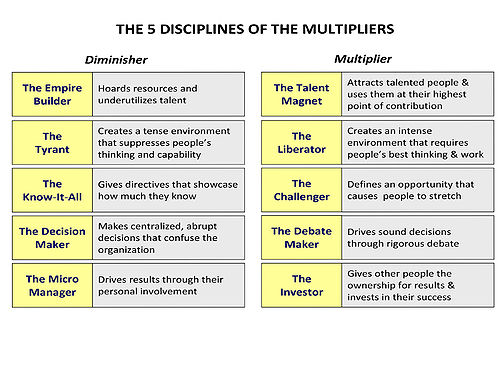
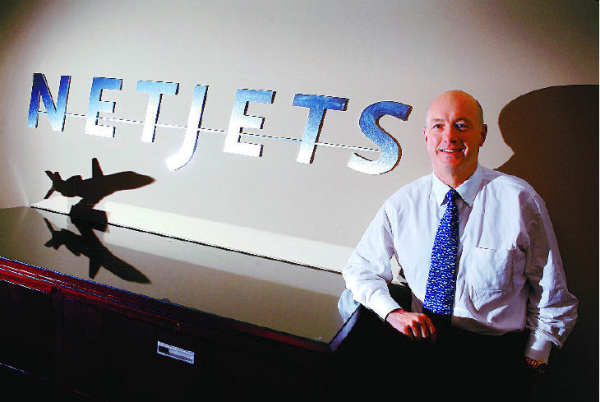

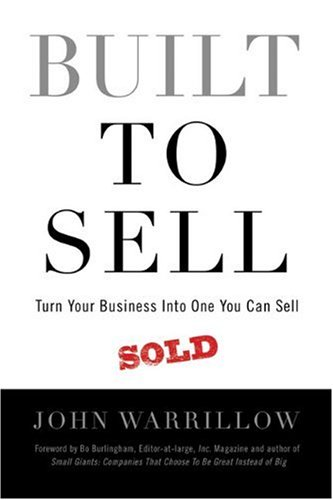






.jpeg?width=150&height=135&name=Hand%20with%20marker%20writing%20the%20question%20Whats%20Next_%20(1).jpeg)

